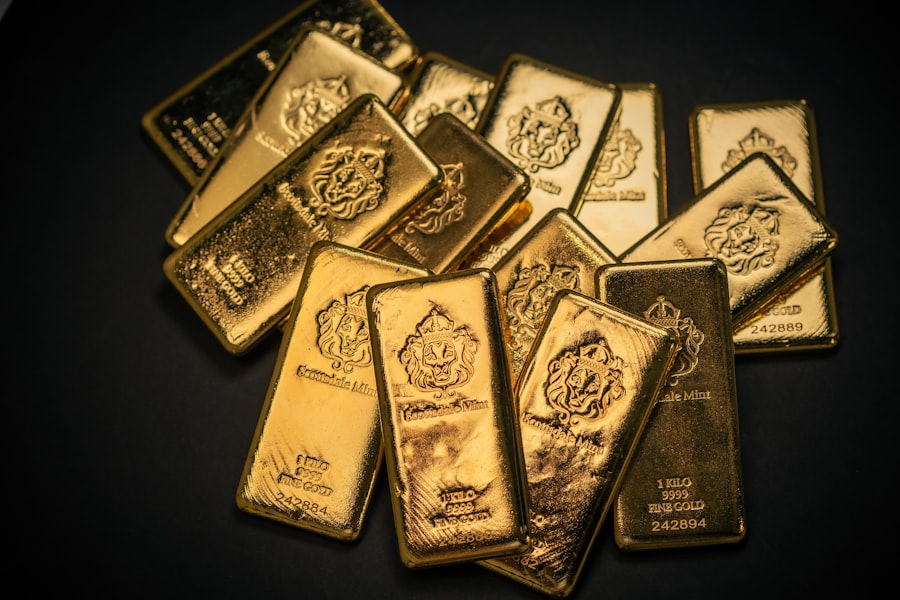The Wagner Group has emerged as a significant player in the realm of private military contractors, often described as a shadowy organization operating in the gray areas of international law. Founded in the early 2010s, this group has been linked to various conflicts around the globe, particularly in regions where Russian interests are at stake. Comprised of former military personnel and mercenaries, the Wagner Group has been involved in operations in Ukraine, Syria, Libya, and several African nations.
Their activities often blur the lines between state-sponsored military action and private enterprise, raising questions about accountability and legality. The group’s operations are characterized by their clandestine nature, often conducted without official acknowledgment from the Russian government. This ambiguity allows the Wagner Group to engage in activities that serve both commercial interests and geopolitical strategies.
They have been accused of human rights violations and war crimes, yet their existence continues to be tolerated, if not tacitly supported, by certain state actors. As a result, the Wagner Group has become synonymous with the darker side of modern warfare, where profit motives intertwine with national interests.
Key Takeaways
- The Wagner Group is a private military company involved in various global conflicts and illicit activities, including gold smuggling.
- A large-scale gold smuggling operation linked to the Wagner Group was uncovered, involving significant quantities of gold.
- The smuggling methods included covert transportation and falsified documentation across multiple countries.
- The operation impacted the global economy by disrupting gold markets and evading international sanctions.
- International authorities are investigating the legal ramifications, with potential severe consequences for the Wagner Group and its connections to the Russian government.
The discovery of the gold smuggling operation
The revelation of a gold smuggling operation linked to the Wagner Group sent shockwaves through international circles. Investigative journalists and intelligence agencies began to piece together evidence suggesting that the group was not only involved in military engagements but also in illicit economic activities. Reports surfaced indicating that the Wagner Group had established a network for smuggling gold from conflict zones, particularly in Africa, where they had been deployed to support local regimes or rebel factions.
This discovery raised alarms about the extent of their operations and the potential implications for global security. The investigation into the gold smuggling operation revealed a complex web of transactions and partnerships that extended beyond the Wagner Group itself. Various local actors, including corrupt officials and criminal organizations, were implicated in facilitating the smuggling routes.
The operation was not merely a side venture; it appeared to be a well-organized enterprise designed to generate substantial revenue for the group and its affiliates. As more details emerged, it became clear that this was not an isolated incident but part of a broader strategy to exploit resources in unstable regions.
The scale of the operation: How much gold was being smuggled?

Estimates regarding the scale of the gold smuggling operation linked to the Wagner Group have varied widely, but reports suggest that it involved significant quantities of precious metal. Some sources indicated that millions of dollars’ worth of gold were being smuggled on a regular basis, with shipments often concealed within legitimate cargo to evade detection. The sheer volume of gold being trafficked raised concerns about its impact on global markets and the potential for destabilizing economies in regions already fraught with conflict.
The operation’s scale was not only impressive but also indicative of a well-coordinated effort to capitalize on the chaos in war-torn areas. The Wagner Group’s ability to move large amounts of gold suggested a level of sophistication and planning that went beyond mere opportunism. Analysts noted that such operations could fund further military activities or bolster the group’s influence in regions where they operated.
The implications of this scale were profound, as it highlighted how non-state actors could manipulate global commodities markets while undermining international law.
The methods used to smuggle the gold
| Method | Description | Common Tools Used | Risk Level | Typical Quantity Smuggled |
|---|---|---|---|---|
| Concealment in Vehicles | Hiding gold in hidden compartments within cars, trucks, or shipping containers. | False compartments, hidden panels, modified trunks | Medium | Up to several kilograms |
| Body Packing | Smugglers carry gold internally or on their person to evade detection. | Body cavities, specially designed clothing or accessories | High | Few hundred grams to 1 kilogram |
| Mail and Parcel Services | Sending gold through postal or courier services disguised as other goods. | Packaging materials, fake labels, decoy items | Medium | Up to several kilograms |
| Mislabeling and Documentation Fraud | Falsifying customs documents to declare gold as other commodities. | Fake invoices, altered shipping manifests | Medium to High | Varies widely |
| Use of Mules | Employing individuals to transport gold across borders covertly. | Personal luggage, hidden compartments | High | Up to 1 kilogram per mule |
| Bulk Smuggling via Cargo Ships | Hiding large quantities of gold within legitimate cargo shipments. | Shipping containers, pallets, false bottoms | Low to Medium | Hundreds of kilograms |
The methods employed by the Wagner Group to smuggle gold were as varied as they were ingenious. One prevalent tactic involved using established supply chains to mask illicit shipments. By embedding their operations within legitimate trade routes, they could transport gold without raising suspicion from customs officials or law enforcement agencies.
This approach not only minimized risk but also allowed them to maintain a façade of legitimacy while engaging in illegal activities. Additionally, the group reportedly utilized bribery and corruption to facilitate their operations. Local officials were often complicit in the smuggling efforts, turning a blind eye in exchange for financial incentives.
This created an environment where illegal activities could flourish unchecked, further complicating efforts to combat such operations. The combination of sophisticated logistics and corrupt practices made it exceedingly difficult for authorities to track and dismantle these smuggling networks effectively.
The countries involved in the smuggling operation
The gold smuggling operation linked to the Wagner Group spanned multiple countries, primarily focusing on regions rich in natural resources but plagued by instability. Countries in Africa, such as the Central African Republic and Sudan, became focal points for these illicit activities due to their ongoing conflicts and weak governance structures. The Wagner Group’s presence in these nations often coincided with their involvement in military support for local factions, creating a symbiotic relationship between armed conflict and resource exploitation.
Nations with porous borders or limited enforcement capabilities became transit points for smuggled gold, allowing it to reach international markets without detection. This interconnected web of countries involved in the smuggling operation underscored the complexity of addressing such issues on a global scale, as it required cooperation among multiple governments and international organizations.
The impact of the gold smuggling on the global economy

The ramifications of the Wagner Group’s gold smuggling operation extended far beyond individual nations; they posed significant threats to the global economy as a whole. The influx of illegally sourced gold into international markets could distort prices and undermine legitimate mining operations. As more smuggled gold entered circulation, it risked devaluing gold as a commodity, impacting investors and economies reliant on stable market conditions.
Furthermore, the financial gains from these illicit activities could be funneled back into conflict zones, perpetuating cycles of violence and instability. The revenue generated from smuggling could finance further military operations or support corrupt regimes, ultimately hindering efforts for peace and development in affected regions. The intertwining of economic interests with armed conflict illustrated how non-state actors like the Wagner Group could wield significant influence over global economic dynamics.
The legal implications for those involved in the smuggling operation
The legal implications surrounding the gold smuggling operation were complex and multifaceted. On one hand, individuals directly involved in the smuggling faced potential charges related to trafficking and organized crime. However, prosecuting such cases proved challenging due to jurisdictional issues and the often clandestine nature of these operations.
Many individuals involved operated under layers of anonymity or through intermediaries, complicating efforts to hold them accountable. Moreover, the involvement of state actors or corrupt officials further muddied the waters regarding legal accountability. In some cases, local governments may have been complicit in facilitating these operations, raising questions about sovereignty and international law.
As a result, addressing these legal challenges required not only national legal frameworks but also international cooperation to establish accountability mechanisms for those engaged in transnational crime.
The response from international authorities
In light of the revelations surrounding the Wagner Group’s gold smuggling operation, international authorities began to take notice and respond with increased scrutiny. Organizations such as Interpol and various United Nations agencies initiated investigations into the group’s activities and their broader implications for global security. Efforts were made to enhance cooperation among nations to combat illicit trafficking and hold accountable those who profited from such operations.
Additionally, sanctions were considered against individuals and entities associated with the Wagner Group as part of broader measures aimed at curbing their influence and financial resources. These actions underscored a growing recognition among international authorities that non-state actors like the Wagner Group posed significant challenges not only to regional stability but also to global governance structures.
The connection between the Wagner Group and the Russian government
The relationship between the Wagner Group and the Russian government has been a subject of intense speculation and debate among analysts and policymakers alike. While official channels have denied any direct ties between the two entities, evidence suggests that the group operates with at least tacit approval from certain elements within the Russian state apparatus. This connection raises questions about accountability and complicity regarding their actions abroad.
The Wagner Group’s involvement in various conflicts often aligns with Russian foreign policy objectives, suggesting a strategic partnership rather than mere coincidence. By utilizing private military contractors like Wagner, Russia can pursue its interests while maintaining plausible deniability regarding direct state involvement in controversial military actions. This dynamic complicates international responses to their activities and highlights the challenges posed by hybrid warfare tactics employed by state actors through non-state proxies.
The potential consequences for the Wagner Group and their associates
As investigations into the gold smuggling operation progressed, potential consequences loomed large for both the Wagner Group and its associates. Increased scrutiny from international authorities could lead to heightened sanctions or restrictions on their operations, limiting their ability to conduct business or engage in military activities abroad. Such measures could significantly impact their financial viability and operational capacity.
Moreover, if evidence were to emerge linking high-ranking officials within Russia to these illicit activities, it could create political fallout domestically and internationally. The ramifications could extend beyond mere legal consequences; they might also affect Russia’s standing on the global stage as nations grapple with how best to respond to state-sponsored mercenary activities that undermine international norms.
The future of gold smuggling and international security
Looking ahead, the future of gold smuggling operations like those linked to the Wagner Group remains uncertain but fraught with challenges for international security. As long as there are regions characterized by instability and weak governance structures, opportunities for illicit resource exploitation will persist. The interplay between armed conflict and economic gain will continue to attract non-state actors seeking profit through illegal means.
To address these challenges effectively, international cooperation will be paramount. Strengthening legal frameworks, enhancing intelligence sharing among nations, and fostering partnerships with local governments will be essential steps toward combating such operations. Additionally, addressing underlying issues contributing to instability—such as poverty, corruption, and lack of governance—will be crucial in mitigating opportunities for groups like Wagner to thrive in conflict zones.
In conclusion, while the Wagner Group’s gold smuggling operation represents a significant threat to global security and economic stability, it also serves as a reminder of the complexities inherent in modern warfare and resource exploitation. As nations grapple with these challenges, finding effective solutions will require concerted efforts across borders and sectors to ensure accountability and promote peace in affected regions.
Recent investigations into the Wagner Group’s activities have revealed a troubling connection to gold smuggling operations, which are believed to be funding their mercenary activities. For a deeper understanding of the implications of these operations, you can read more in this related article on the topic. Check it out here: com/sample-page/’>Wagner Group Gold Smuggling Insights.
WATCH THIS! The Secret War for Africa’s Gold: How Private Armies Fund Global Conflict
FAQs
What is the Wagner Group?
The Wagner Group is a private military company known for its involvement in various conflicts around the world. It is often linked to Russian interests and operates in regions such as Africa, the Middle East, and Eastern Europe.
What is gold smuggling in relation to the Wagner Group?
Gold smuggling refers to the illegal extraction and transportation of gold to avoid taxes, sanctions, or legal restrictions. Reports have suggested that the Wagner Group may be involved in gold smuggling activities as a means to finance its operations.
Where does the Wagner Group allegedly conduct gold smuggling?
The Wagner Group is reported to be involved in gold smuggling primarily in African countries where it has a military or strategic presence, such as the Central African Republic and Sudan.
Why is gold smuggling significant for the Wagner Group?
Gold smuggling can provide a lucrative source of revenue for the Wagner Group, helping to fund its military activities and maintain its operations without relying on official state funding.
Are there international efforts to stop Wagner Group’s gold smuggling?
Yes, international organizations and governments have imposed sanctions and are working to monitor and prevent illegal gold trade linked to the Wagner Group to curb its funding sources.
How does gold smuggling impact local communities?
Gold smuggling can lead to environmental degradation, loss of government revenue, and increased conflict in local communities, as illegal mining operations often operate outside of legal and safety regulations.
Is there concrete evidence of Wagner Group’s involvement in gold smuggling?
While there are multiple reports and investigations suggesting Wagner Group’s involvement in gold smuggling, definitive public evidence is limited due to the secretive nature of the group’s operations.
What measures can be taken to combat gold smuggling by groups like Wagner?
Measures include strengthening border controls, enforcing international sanctions, increasing transparency in gold supply chains, and supporting local governance and law enforcement in affected regions.




